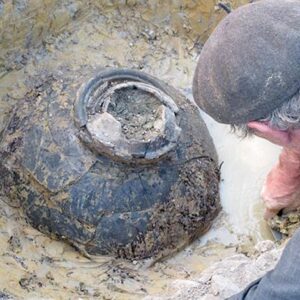Uganda has recently discovered a large deposit of gold, with an estimated worth of 12 trillion USD. This is a significant discovery for the country, as it has the potential to transform Uganda’s economy and lift millions of people out of poverty.

The gold deposits were found in the Karamoja region, which is located in the northeastern part of Uganda. This region is known to be rich in minerals, and the discovery of gold is just the latest in a series of findings that have been made in the area in recent years.
The Ugandan government has been quick to seize on the potential of this discovery, and has already started planning for the development of the region. The government is hoping that the discovery of the gold deposits will attract foreign investment, create jobs, and boost economic growth.
However, there are also concerns about the potential environmental and social impacts of the gold mining industry. Mining activities can have significant negative impacts on the environment, including soil erosion, water pollution, and loss of biodiversity. In addition, there are concerns about the impact of mining on local communities, including the displacement of people and the disruption of traditional livelihoods.
To address these concerns, the Ugandan government has stated that it will prioritize responsible and sustainable mining practices. The government has also pledged to work closely with local communities to ensure that they benefit from the development of the mining industry.

Overall, the discovery of the gold deposits in Uganda has the potential to be a game-changer for the country’s economy. However, it is important that the development of the mining industry is carried out in a responsible and sustainable manner, and that the benefits of the industry are shared equitably with local communities.





